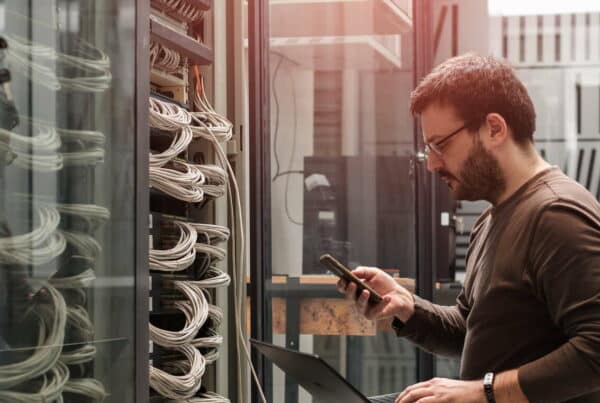
Multifactor authentication (MFA) is an important layer in a small business’ cybersecurity infrastructure, and it can often act as the last line of defense in the event of a cyberattack. This is because malicious actors will need an extra piece of information to log into an account they have stolen credentials for, and this is often enough to prevent the attack from going any further. But what makes a strong MFA? In this post, we want to go over a few things you should consider when implementing multifactor authentication into your cybersecurity so that you can maximize your security coverage!
What makes a strong MFA?

MFA functions to counter any cyberattacks that involve stealing credentials and accessing an account on the network malicious actors want to attack. Because the value of multifactor authentication comes from blocking unauthorized access to an account, your MFA should have two or more requirements for verifying user identity. Typically, multifactor authentication requires the user knowing something unique, having something unique, or using biometrics that are unique to them. A strong MFA allows for a combination of authentication methods that best suit your business, and the service should be easily scalable, so you can enroll new employees on their first day to prevent lapses in MFA coverage.
Including MFA in Your Cybersecurity Plan

A strong MFA service can help prevent ransomware, phishing attacks, and a host of other cybersecurity threats, but it can play a much bigger role in your company’s cybersecurity infrastructure as well. Many MFA services now include features that let you monitor the security of the devices on your network and restrict access based on the update and security patch status of each device. This means you can prevent possible attack vectors from connecting to your network automatically! A strong MFA service should also allow you to restrict access to specific applications on your network, meaning you can have a customizable layer of security on all your sensitive information.
What Does Multifactor Authentication Not Do?

Multifactor authentication services have gotten much better at helping small businesses proactively protect their networks, but MFA primarily functions to keep out attackers that have already successfully stolen your credentials. This means that MFA does not replace other security tools like edge protection nor next-generation firewalls. Small businesses can find out their credentials have been compromised because of MFA, but how the business responds to this threat still needs planning and training aided by an experienced IT consultant. Multifactor authentication can be a strong last line of defense, but it needs other security tools and training in place to be an effective part of your business’ cybersecurity plan!
Summary
Multifactor authentication is a cybersecurity tool that Robinett Consulting highly recommends for every business. Its flexibility for authentication, robust features that improve cybersecurity, and ability to easily scale in any business make it a valuable tool for preventing cyberattacks. If your small business needs a reliable IT partner that can provide you with the MFA you need and the IT consulting to make the most out of it, then our cybersecurity specialists are ready and waiting to help you fit MFA into your cybersecurity plans as early as today!





